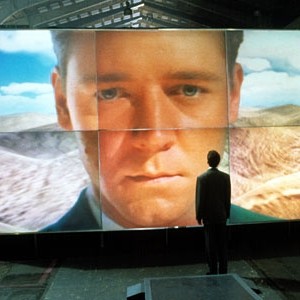Too often, we label something as PvP and then just expect everyone to understand what that means. But PvP comes in lots of flavors and not all of it is the same. Back in January I wrote an entry about what I called the PvP Political Compass. That compass is my attempt to describe the flavors of PvP that exist in games.
What is interesting about the compass is that it also describes what people WANT out of these games. At one end of the spectrum, players want their actions to have an Impact. You play to win and you make your own fair play by carving out your own little place in the world. And in MMOs, this means grouping with other like-minded individuals for protection.
At the other end of the spectrum are players who take their meaning from the competition itself. They don’t want there to be any confusion caused by unfairness. Two people meet under equal terms and the person who emerges as the victor KNOWS they are the better player. No question. This is the same type of competitive spirit we crave in our sports teams.
As you can see in the PvP Compass, these two ideas are not compatible. By virtue of having Impact, you create an imbalance that is unwanted by the player who wants more competition. But it’s not entirely black and white. It’s more of a sliding scale. The more competitive you make it, the less impact exists. The more impact you create, the less competitive it becomes.
Can we make a Competitive PvP-based MMO?
It’s not much of a coincidence that the only successful MMOs which feature PvP as a prominent part of the game happen to focus on Impact-type PvP. MMOs, by the very nature of character progression, do not lend themselves towards equality. Thus, a PvP game which is very purposefully designed without the need for equality is going to feel like a more natural result.
The problem here is that Impact PvP isn’t the most desirable type of PvP for most players. Starcraft, Counter-Strike, Halo and countless other games in other genres have been immensely popular to the Competitive PvP crowd. Even Tobold (known PvP hater) recently admitted that “PvP games could be more successful if they would do a better job of pairing people with similar skills and abilities against each other.”
Impact PvP, by contrast, appeals to a much smaller group of players. It takes a certain type of player who is willing to both risk the consequences of negative sum PvP and has the skills to master the “social” part that these games require to find some measure of safety in a group.
So, in my opinion, it’s not that PvP isn’t a popular option. It’s that the type of competitive PvP that more players would enjoy has never been implemented in any MMO. Which begs the question, is it even possible?
Half empty or Half full?
Presumably, in a world of perfect equality, an average skilled player would lose just as many fights as they won. I think intellectually that most people can grasp that idea. But emotionally and subjectively, I think it becomes an incredible complex problem.
Because, in practice, most people will react emotionally. He must have cheated! We got nerfed! Laaaaag!
Further complicating the issue is self-perception. Would a person be happy they are winning half the time, or pissed off that they are losing half the time?
Countering the Character Progession
I sincerely wish that more games used a method of “tiering” players into relative power groups. WAR comes immediately to mind but they did it badly. For one thing, I wouldn’t “uprank” players to a new level. I would “downrank” more advanced players when they entered an area intended for characters who were less powerful.
Or as I suggested on Syncaine’s blog yesterday:
No upranking for low level characters into high level areas. Just downranking if a high level character chooses to visit an area that is not intended for them.
The key point here is that it’s an area NOT intended for them. Low level mobs they want to safely grind on? No. Sorry. Not intended for you.
Newbie players trying to figure out how to PvP? Sorry. Not going to be an easy gank because while you are more knowledgeable, you are not more powerful.
Everyone is welcome to travel anywhere they want, but if you choose to visit places that aren’t for you than there are consequences.
A low level character going into a high level area risks getting one-shotted. A high level character going into a low level area risks having to actually fight a new player on more equal footing.
Oh. And, sorry. No power leveling your buddy because you aren’t much more of a bad ass.
Now you obviously put all the best and most worthwhile stuff in non-protected areas. If the interesting stuff is not in these areas, then people will be motivated to move out of them quickly.
The real benefit of all this is that new people of similar power levels get to bang heads against each other instead of getting ripped up by the veterans.
I feel if you want to see a ‘popular’ implementation of PvP in an MMO that it has to address this competitive spirit. No MMO has done this well yet. Perhaps it’s impossible. But I’m holding out hope.




